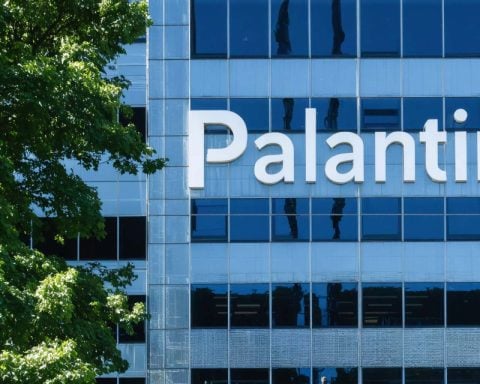A New Era in Medical Innovation
Nvidia has made headlines with its groundbreaking partnerships aimed at revolutionizing healthcare through artificial intelligence (AI). Announced at the J.P. Morgan Healthcare Conference in San Francisco, the collaborations involve well-known industry giants within the enormous $10 trillion healthcare market.
Nvidia emphasized the transformative power of AI, stating that the integration of advanced computing and biological data is poised to turn healthcare into a leading technology sector. Collaborating with prominent organizations like IQVIA, Illumina, and the Mayo Clinic, the company is leveraging its cutting-edge technology to forge new health solutions.
These innovative applications include AI-driven systems that minimize bureaucratic obstacles during clinical trials, AI-powered models that utilize biological data for drug discovery and digital pathology, as well as physical robots aimed at enhancing surgical procedures and patient supervision. Nvidia noted that such advancements could optimize approximately $3 trillion spent on operational support, creating vast opportunities for growth in the AI sector.
At the Mayo Clinic, Nvidia’s technology will expedite the creation of advanced pathology models, while Illumina will enhance its multiomics analysis workflows using Nvidia’s powerful AI tools. These initiatives promise to make genomic insights more available to researchers and pharmaceutical firms.
As Nvidia continues to solidify its position as a leader in technological innovation, the healthcare industry stands on the brink of a significant transformation driven by AI advancements.
A New Era in Medical Innovation
In the rapidly evolving landscape of healthcare, Nvidia is emerging as a key player, leveraging artificial intelligence (AI) to revolutionize the industry. The company’s recent partnerships with major institutions, revealed at the J.P. Morgan Healthcare Conference in San Francisco, signal a potential paradigm shift in a sector valued at an astonishing $10 trillion. Through collaborations with esteemed organizations such as IQVIA, Illumina, and the Mayo Clinic, Nvidia is primed to integrate advanced computing with biological data, propelling healthcare into the realm of high-tech innovation.
As Nvidia highlights, the transformative capabilities of AI can significantly streamline processes in healthcare—reducing bureaucratic hurdles during clinical trials, enhancing drug discovery through predictive modeling, and improving surgical procedures via robot-assisted technologies. The implications of these advancements are profound, with the potential to optimize around $3 trillion currently earmarked for operational support in healthcare. This optimization not only signifies cost savings but also suggests a substantial expansion of opportunities within the AI sector itself.
One of the most exciting prospects of Nvidia’s innovations is their capacity to expedite the creation of sophisticated pathology models at the Mayo Clinic and to enhance multiomics analysis workflows at Illumina. By making genomic insights more accessible, these initiatives could herald a new era in precision medicine, where treatments are tailored to the individual genetic profiles of patients.
Impact on Humanity and the Environment
The implications of this medical innovation extend beyond immediate healthcare improvements. As AI technologies allow for faster drug development and more accurate diagnostics, they could significantly improve patient outcomes and overall public health. This transformation could lead to a healthier global population, reducing the burden of diseases that have a devastating impact on humanity.
Moreover, there is an environmental angle to consider. The healthcare sector is often criticized for its considerable carbon footprint, driven by extensive resource use in drug production, equipment manufacture, and operational inefficiencies. By optimizing these processes through AI and thereby reducing waste, the environmental impact of healthcare could diminish significantly, aligning with global sustainability goals.
Economic Connections and Future Considerations
From an economic standpoint, the shift toward AI-enhanced healthcare could create new markets and jobs, particularly in tech development, data analysis, and biomedical research. As Nvidia and its partners advance their initiatives, they may inspire further investments, driving growth in both traditional healthcare and the burgeoning tech sector. This could particularly prove beneficial in developing regions where access to healthcare resources is limited—AI technologies could bridge the gap, bringing advanced medical solutions to underserved populations, and stimulating local economies.
In contemplating the future of humanity, the intersection of AI and healthcare emerges as a pivotal point of transformation. If successful, we can expect enhanced healthcare delivery globally, a reduction in health disparities, and a notable improvement in quality of life. However, this potential must be approached with caution; as AI systems become integral to health decisions, ethical considerations, including data privacy, algorithmic bias, and equitable access to technology, will be paramount.
In conclusion, Nvidia’s foray into medical AI not only stands to revolutionize healthcare practices but also sets the stage for a future where human health, environmental sustainability, and economic growth converge. As we navigate this new era of medical innovation, we must remain vigilant to ensure that the benefits are realized universally, positioning humanity for a healthier and more sustainable tomorrow.
Transforming Healthcare: Nvidia’s AI Innovations Set to Revolutionize the Industry
Nvidia’s Role in Modern Healthcare
Nvidia is at the forefront of a new wave of medical innovation driven by artificial intelligence (AI), poised to reshape the healthcare landscape. With partnerships announced at the J.P. Morgan Healthcare Conference in San Francisco, Nvidia is collaborating with influential organizations such as IQVIA, Illumina, and the Mayo Clinic. This strategic alliance aims to leverage AI’s transformative potential within the expansive $10 trillion healthcare market.
Key Innovations Changing Healthcare
Nvidia’s initiatives encompass a range of AI-driven applications that could revolutionize how healthcare is delivered and managed. Here are some notable innovations:
– AI in Drug Discovery: Nvidia’s technology is being harnessed to develop AI models that analyze biological data, aiding in the identification of new drug candidates and catalyzing pharmaceutical research and development.
– Enhancing Clinical Trials: By streamlining processes and reducing bureaucratic hurdles during clinical trials, Nvidia’s AI systems are set to accelerate the testing and approval of new treatments.
– Robotics in Surgery: The introduction of AI-powered robotics aims to improve surgical precision and enhance patient supervision, thereby increasing the efficacy of surgical operations.
Pros and Cons of AI Integration in Healthcare
Pros:
– Increased Efficiency: AI systems can automate time-consuming tasks, allowing healthcare professionals to focus on patient care.
– Better Patient Outcomes: With advanced analytics and predictive capabilities, AI can facilitate early diagnosis and personalized treatment plans.
– Cost Reduction: Optimizing operational expenditures can lead to significant savings in healthcare costs, potentially reducing the $3 trillion currently spent on administrative overhead.
Cons:
– Data Privacy Concerns: The integration of AI systems raises issues surrounding the security of sensitive patient data.
– Implementation Challenges: Transitioning to AI-driven processes may require substantial investment in technology and training.
– Dependence on Technology: Over-reliance on AI could diminish human decision-making and intuition necessary in healthcare.
Use Cases: How Nvidia is Making an Impact
At the Mayo Clinic, Nvidia’s cutting-edge AI technology is speeding up the development of advanced pathology models, enabling faster diagnostics and treatment plans. Additionally, Illumina is utilizing Nvidia’s AI tools to enhance its multiomics analysis workflows, which will lead to more accessible genomic insights for researchers and pharmaceutical companies.
Insights into Future Trends
As artificial intelligence continues to evolve, its application in healthcare will likely expand, leading to innovations in personalized medicine and telehealth. Furthermore, the accessibility of health data and advanced analytics will foster a more proactive approach to patient care.
Security Aspects and Sustainability
Nvidia’s AI solutions are designed with robust security protocols to ensure data integrity and patient confidentiality. As healthcare data becomes increasingly digitized, ensuring compliance with regulations such as HIPAA will be crucial. Additionally, by optimizing processes and reducing waste, Nvidia’s initiatives contribute to sustainable healthcare practices.
Market Analysis and Predictions
As AI technology in healthcare matures, industry experts predict a surge in investment and a significant uptick in startups focusing on medical AI solutions. The collaboration between technology companies and healthcare institutions is expected to grow, driving innovative solutions and improving overall healthcare delivery.
For more information about medical AI advancements, visit Nvidia’s official site for the latest updates.
In conclusion, Nvidia’s commitment to harnessing AI signifies a pivotal moment in healthcare, promising more efficient processes, better patient outcomes, and a forward-thinking approach to medical challenges.


















